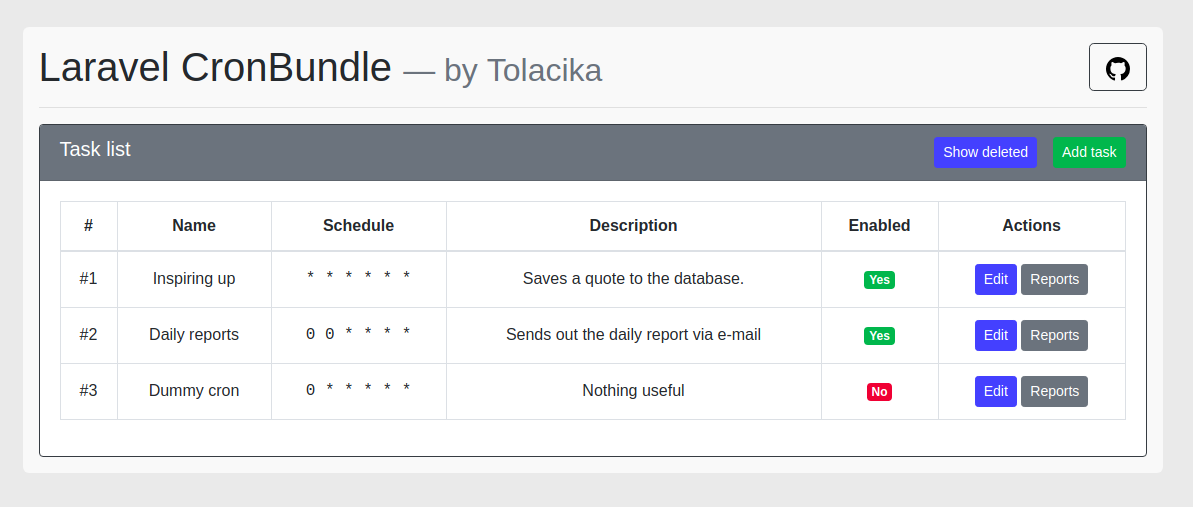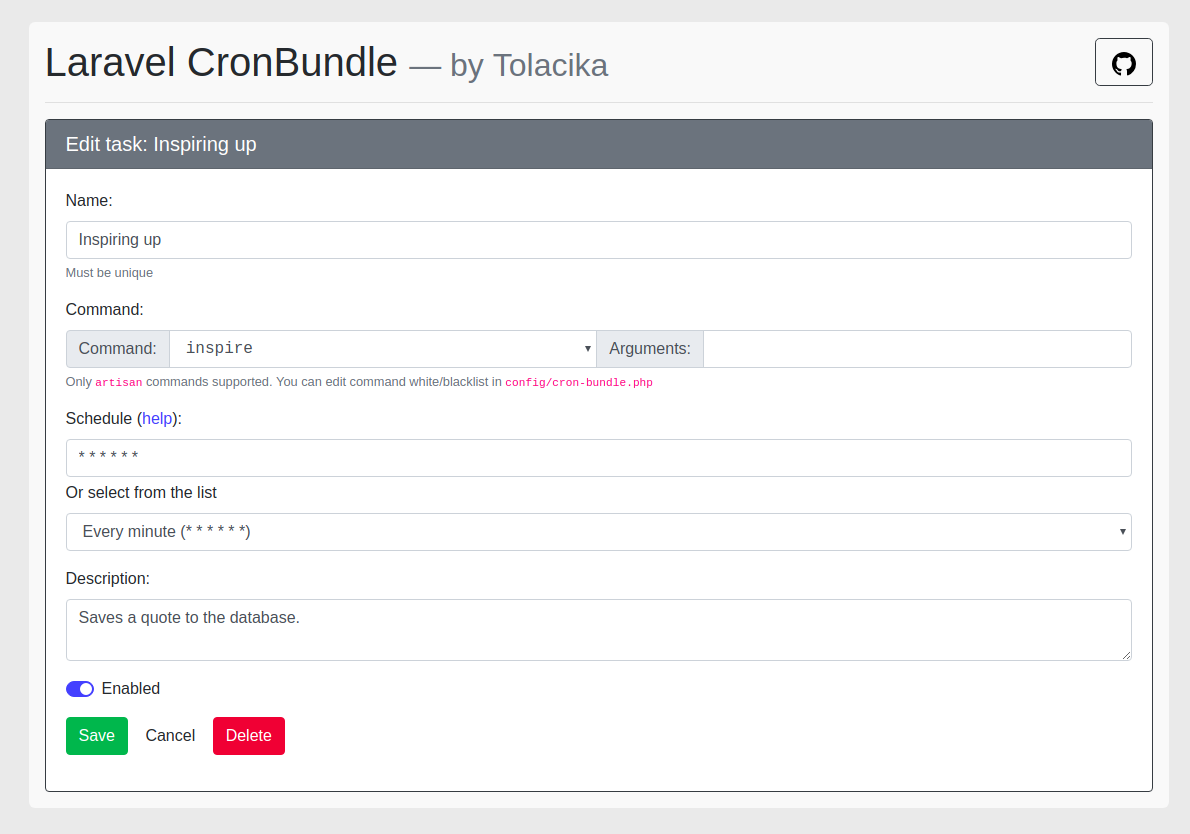tolacika / laravel-cron-bundle
This package is a hepler for crons without crontab
Installs: 2 155
Dependents: 0
Suggesters: 0
Security: 0
Stars: 8
Watchers: 1
Forks: 2
Open Issues: 1
pkg:composer/tolacika/laravel-cron-bundle
Requires
- php: ^7.1.3
- ext-json: *
- cron/cron: ^1.4
- laravel/framework: ^5.1
Requires (Dev)
- mockery/mockery: ^1.0
- phpunit/phpunit: ^7.0
This package is auto-updated.
Last update: 2026-02-21 04:05:16 UTC
README
Introduction
With this package you can replace the default crontable. Or the Laravel's scheduling feature. This package allows you to define your crons in a database table and manage these from command or from an Admin panel. And you can run it from supervisor.
Tested with Laravel versions
- Laravel 5.6
If you have problems with other versions please submit an issue.
Installion
Use composer to install CronBundle packages:
composer require Tolacika/Laravel-Cron-Bundle
Once CronBundle is installed, run the migrations
php artisan migrate
And in case of need you can pubish the config file with this command:
php artisan vendor:publish --provider="Tolacika\CronBundle\CronBundleServiceProvider"
Running Crons
With crontab
* * * * * php /path-to-your-project/artisan cron-bundle:execute >> /dev/null
With supervisor
[program:cron_bundle] command=php artisan cron:start --blocking process_name=%(program_name)s_%(process_num)02d numprocs=1 autostart=true autorestart=true startsecs=0 user=www-data redirect_stderr=true stderr_logfile = /var/log/supervisor/cron_bundle_err.log stdout_logfile = /var/log/supervisor/cron_bundle_stdout.log stdout_logfile_maxbytes=10MB stdout_logfile_backups=10
Run as daemon
If you have PCNTL PHP extension you can start a daemon worker with this command:
php artisan cron-bundle:start
Managing crons
From command line
You have several interactive commands to use for creating, deleting, enabling and disabling crons:
cron-bundle:list- to list all jobcron-bundle:create- to create a jobcron-bundle:delete {jobId}- to delete a jobcron-bundle:enable {jobId}- to enable a jobcron-bundle:disable {jobId}- to disable a job
From dashboard
Also you have a fancy dashboard to manage your jobs. And from here you can see the run results and change logs.
Dashboard
Authenticating to dashboard
After package installed and migration is done, you can access the dashboard in example.com/CronBundle
By default the dashboard only available in local environment. To change this behaviour place this snippet to your AppServiceProvider's boot() method, of course replace the auth()->check():
use Tolacika\CronBundle\CronBundle; /** * Bootstrap any application services. * * @return void */ public function boot() { // ... CronBundle::auth(function ($request) { // returns true or false return auth()->check(); }); // ... }
Identifying user for logs
If you are using log type other than none, its useful to set the current user for logging. You can do this with CronBundle::setUser() method in your AppServiceProvider's boot() method, like this:
use Tolacika\CronBundle\CronBundle; /** * Bootstrap any application services. * * @return void */ public function boot() { // ... CronBundle::setUser(function ($request) { // the return type must be an integer, or null return auth()->user() ? auth()->user()->id : null; }); // ... }
Configuration
After publishing the config file, you can see some options in config/cron-bundle.php. Each config entry is documented here.
Changelog
Important versions listed below. Refer to the Changelog for a full history of the project.
Credits
Bug reports, feature requests, and pull requests can be submitted by following our Contribution Guide.
Contributing & Protocols
License
This software is released under the MIT License.
© 2017 Laszlo Toth, All rights reserved.


